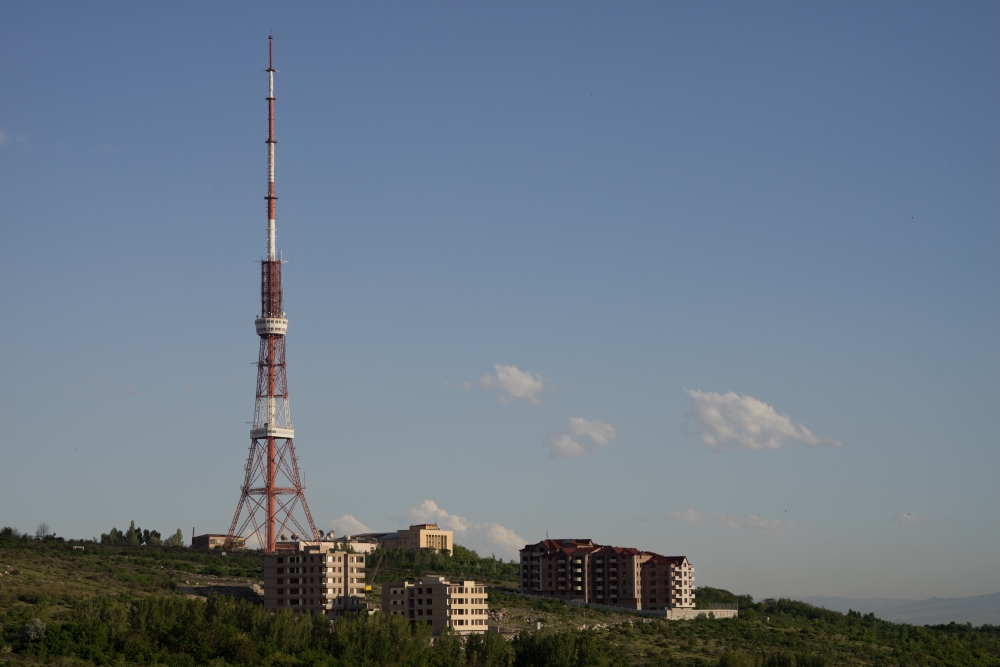The Council of Public Broadcaster published four conclusions on the cases registered in the first half of 2023, when the public discussed and criticized the professional conduct of journalists.
In two of four cases, the executive directors of Public Television and Public Radio applied disciplinary measures.
Swearing or bleep censor on the air
The first is the case of February 17, during the “Interview with Petros Ghazaryan” program, the voice of the president of the “Yerkrapah Volunteer Union,” Sasun Mikayelyan, was interrupted twice by a bleep sound.
“Although there was no profanity on the air, the very fact of voice intervention created such a belief. The editorial measures did not prevent but rather confirmed the use of impermissible vocabulary in the TV booth. In this case, the host’s tolerant silence towards such vocabulary becomes problematic,” the conclusion states.
According to the members of The Council of Public Broadcaster, in this case, bleeping out was not the best measure to settle the situation by those responsible for the program.
The Council urged the Public TV to create, approve, publish, and hereafter apply an Editorial Guide, which will indicate the actions of the responsible editor and anchor in similar situations and “exclude profanity on the air of the Public Television while maintaining high standards of freedom of speech, journalistic ethics and professionalism.”
Bias on the Air
The other case is from Public Radio. Monitoring revealed that during the March 3 edition of the “Status Quo” program, Gevorg Melikyan “expressed an undisguised bias to one of the interested parties of the covered topic by clearly expressing support to the guest.”
Eco-activist Tehmine Enokyan was the program’s guest; the topic was the Amulsar mine operation.
The executive director of Public Radio, Garegin Khumaryan, applied a disciplinary measure: the production and broadcasting of the “Status Quo” program was stopped for one month.
“Diary of a Woman” will present new content
One of the most discussed Public Television programs on social networks is “Diary of a Woman.”
The Television and Radio Commission sent a letter documenting the negative response to the viewpoints expressed in the “Diary of Woman” program to the Council of the Public Broadcaster. During discussions on Facebook, the program was criticized for being particularly sexist.
In the conclusion, the Council suggested that Public Television temporarily stops broadcasting the “Diary of a Woman” program and presents the new content of the same program according to the established procedure.
During the discussions, the Council members agreed that.
A. The subtitle “Men About Women” of the “Diary of a Woman” program does not correspond to the principles and mission of public broadcasting.
B. It is tolerated when the guests participating in the program often express discriminatory attitudes towards women, which is prohibited by Article 9, Clause 7 of the RA Law “On Audiovisual Media.”
C. The presenter’s sympathy for the opinions expressed (clearly expressed in her direct speech) contradicts the code of journalistic ethics.
Super Sako and Komitas
Everybody on traditional and social media discussed the “Out of Character: Super Sako” program for a whole week in May. The program’s guest, discussing mugham, said that Komitas presented Armenian music to Europe, and Europeans did not understand the quarter notes of mugham and found it unpleasant. Consequently, when he returned, he said all quarter notes should be deleted to make Armenian music more likable for foreigners.
The Council of Public Broadcaster did not find it appropriate to take any action based on ethics violations for the particular episode of the “Out of Character” program. The Council also considered the statement of the Komitas Museum-Institute addressing the subject to be legitimate and appropriate.
Public broadcasters (television and radio) are members of the Self-Regulation Initiative: Media Ethics Observatory and are guided by the Code of Ethics of Armenian Media and Journalists.
Gegham Vardanyan







